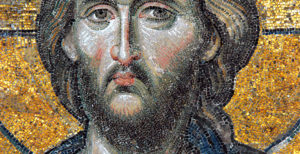Just the other day I was flipping through TV channels and came across a show about a guy who picks up road kill for a living. I thought, “Why in the world would anyone want to watch this?” And then, of course, I couldn’t turn it off! That show was called “Dirty Jobs,” and Mike Rowe was the man who became famous for trying some of the dirtiest jobs on the planet. He has waded through sewers, castrated horses, farmed worm poop, and sorted through medical waste, just to name a few. He goes out and learns about the jobs that none of us would ever want to do, and gets coached by the people who do these jobs every day for a living. It’s not just for entertainment, because Mike goes deeper in order to pay respect to the men and women who roll up their sleeves and do these challenging jobs every day. Read More
Peter | Deacon Allen Tatara Catholic Speaker
On the Inside; On the Outside
 Today we remember Saints Peter and Paul: two men called by God to do great things. Two men who certainly were not born equipped to serve the Lord, but rather, two men who were equipped by the Lord to preach the Gospel and ultimately to give up their lives for its sake.
Today we remember Saints Peter and Paul: two men called by God to do great things. Two men who certainly were not born equipped to serve the Lord, but rather, two men who were equipped by the Lord to preach the Gospel and ultimately to give up their lives for its sake.
Peter was a young fisherman living on the coast of the Sea of Galilee. He was a man prone to outbursts and weak under pressure. He was unstable, impulsive, insecure, and cowardly. He often spoke or acted inappropriately, and was anything but a rock.
Paul was a highly educated Pharisee who persecuted Christians, even ordering the stoning of the first martyr of the Church, Saint Stephen. He was a bigot, self-righteous, manipulative, vindictive, cunning and opportunistic.
Peter and Paul were two unlikely characters for the Lord to call into his service and to establish as apostles of the Church. Yet the Lord chose them, transformed them, and entrusted to them to spread the Gospel.
God called Peter and Paul to use their personalities for the good: Peter to use his passionate love to look after the flock, and Paul to use his training as a Pharisee and his strength of character to ensure that the non-Jews would be welcomed into the church. It is a reminder to us that our strengths and our weaknesses can become God’s means of helping others, if we let it. We don’t have to be perfect for God to work through us. God can work through us, faults and all, just as he did with Peter and Paul.
Spiritual conversion requires the greatest miracle of all, but God’s Word is reassuring. If people like Peter and Paul could become deeply converted and change the world, then we know there is hope for the rest of us.
 Peter experiences a moment of clarity in today’s Gospel (Mark 8:27-33). Briefly the clouds part and he speaks from the heart: “You are the Christ.” It is the discovery of one who has followed, asked, watched, and questioned. But as our story unfolds we realize Peter knows almost nothing about the implications of his declaration. He speaks a seed of truth without knowing how, when, or where it will grow.
Peter experiences a moment of clarity in today’s Gospel (Mark 8:27-33). Briefly the clouds part and he speaks from the heart: “You are the Christ.” It is the discovery of one who has followed, asked, watched, and questioned. But as our story unfolds we realize Peter knows almost nothing about the implications of his declaration. He speaks a seed of truth without knowing how, when, or where it will grow.
Jesus’ identity was widely debated. The disciples give a number of answers reflecting the speculations of the people: John the Baptist, Elijah, a prophet of old. All they really know is this one is very different.
But no one has a clue just how different Jesus really is.
For the disciples the declaration implies political freedom, armies, war, riches, and power. God’s Messiah will set Israel free from the clenched fist of Rome. They are imagining a king, a court, and multiple thrones.
So Jesus begins the monumental task of redefining their expectations. He speaks plainly of suffering, rejection, death, resurrection. Peter offers his quiet word of correction. After all, no one will follow into battle if Jesus talks like this. They expect blood to be shed – but not the blood of Jesus.
Jesus’ words are clear but, with the exception of Peter’s rebuke, each time the disciples have nothing to say. Mark offers the only word of explanation later in the Gospel: “Though they failed to understand his words, they were afraid to question him.” (Mark 9:32).
After all, it is so unexpected. So Jesus must slowly open a space in which to reveal God’s suffering, death and resurrection which will lead the disciples to understand how they will be freed by the ultimate sacrifice of God’s love.
Let us pray that we may have that same revelation.



